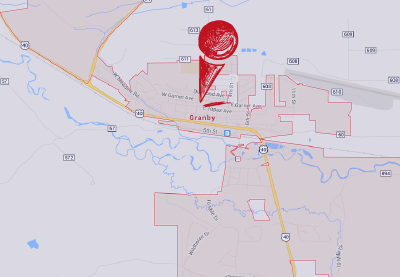What is a keyword and why should you care?
Keywords are the building blocks of any digital marketing plan. If you are considering starting or have started a online marketing plan, you are sure to have heard the word tossed around. So why are keywords important for you? Let’s break it down.
What is a keyword?
A keyword is a word or phrase that someone would use to find your website, social media profile or the like. Despite their name, keywords are not limited to just one word. They are often a phrase, also called long tail keywords. For example, if you are interested in finding a local web developer, your keyword might be something like “web designer in Grand County” or “web developer in Winter Park”.

Why do you need to define your keywords?
It’s important to know what keywords are the best opportunities for a particular business or industry. Often times, the chosen keyword list is different or altered from a traditional marketing plan. We might avoid some keywords that are not likely to be used by the general public, such as technical jargon, even when it most accurately defines what you do. Or perhaps a keyword is oversaturated and so highly competitive that a modest marketing budget would be swallowed up by the attempt.
While keywords are important, it’s important to remember that they do not encompass the entirety of your marketing plan. Keyword marketing is meant to drive relevant traffic to a website. If a keyword will not drive traffic to your site, we don’t market for it. That doesn’t mean you need to change your business plan. It just means we choose another route to get you the traffic you need.
What makes a good keyword?
Simply put, keywords are judged by 2 main criteria: search volume and competition. We rate each keyword by the amount of monthly, national traffic it receives (more is better obviously) divided by the competition. The competition is judged by how many other websites (nationally) have that particular keyword in their title tag. (Marketers generally agree that to market for a keyword, you need it in the title tag so it’s a safe bet.)
There are also a few other guidelines we like to keep in mind.
Keywords should be geographical
 Google believes local results are better for the user, and will generally give priority to local results. We can capitalize on this by including a local definer to our keyword phrases. So “website developer” becomes “website developer in Winter Park Colorado”. Keyword ranking for national keywords can be difficult; the smaller the circle, the lower the competition. We like to make you a big fish in a small pond, working outward in concentric circles. Keep in mind, increased ranking and traffic from one keyword helps the website as a whole.
Google believes local results are better for the user, and will generally give priority to local results. We can capitalize on this by including a local definer to our keyword phrases. So “website developer” becomes “website developer in Winter Park Colorado”. Keyword ranking for national keywords can be difficult; the smaller the circle, the lower the competition. We like to make you a big fish in a small pond, working outward in concentric circles. Keep in mind, increased ranking and traffic from one keyword helps the website as a whole.
Keywords should be natural language
Google is moving more and more towards what they call “gist”. What does this mean? They are trying to figure out the intent of the user, and match the search results with that concept instead of an exact phrase. For example, if you search for the phrase “movie about a tiger in a boat” you would hopefully get results about the movie Life of Pi regardless of whether that exact phrase was on the page! Search engines are definitely getting smarter, and because of this you might consider using keyword sets instead of one keyword per page.
Statistically, the top 3 results on a google results get the lion’s share of the clicks. First page is also a good goal. Without knowing your keywords, how do you even know how you rank for them? Learn more about how we can help you develop a keyword plan to drive more relevant traffic and increase conversions.


 Google believes local results are better for the user, and will generally give priority to local results. We can capitalize on this by including a local definer to our keyword phrases. So “website developer” becomes “website developer in Winter Park Colorado”. Keyword ranking for national keywords can be difficult; the smaller the circle, the lower the competition. We like to make you a big fish in a small pond, working outward in concentric circles. Keep in mind, increased ranking and traffic from one keyword helps the website as a whole.
Google believes local results are better for the user, and will generally give priority to local results. We can capitalize on this by including a local definer to our keyword phrases. So “website developer” becomes “website developer in Winter Park Colorado”. Keyword ranking for national keywords can be difficult; the smaller the circle, the lower the competition. We like to make you a big fish in a small pond, working outward in concentric circles. Keep in mind, increased ranking and traffic from one keyword helps the website as a whole. 
